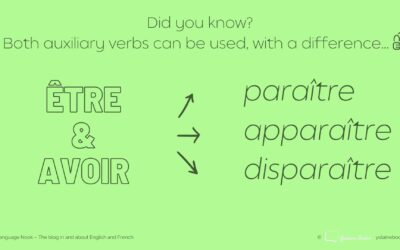In French, there are several possible prepositions you can use before a duration or length of time. Two common ones are dans et en. The meaning changes depending on whether you use dans or en before a duration. It is easy to get it wrong if French is not your native language.
The good news is that it is easy to understand the difference! 🙂
Dans + duration
We use dans in front of a given length of time to say how long it will take before the action happens or begins, i.e. when the action is going to happen. For example
- Vite, il est déjà 21h, le film commence dans 10 minutes → this means the film will start at 21:10
- Je te téléphonerai dans une semaine → I’ll call you in a week (one week will go by before I call you)
- Dimanche, elle m’a dit qu’elle qu’elle arriverait dans 2 jours → She’ll arrive on Tuesday (you count 2 days after Sunday)
Note: Dans always introduces a future event
En + duration
We use en in front of a length of time to say how long is needed to accomplish the action, i.e. how much time it takes to do what is expressed in the verb. That can be about past, present or future actions, it doesn’t matter. Here are a few examples :
- J’ai préparé ce plat en 10 minutes → it took me 10 minutes to prepare this dish.
- Elle a fini de peindre le mur en 2 heures → it took her 2 hours to paint the wall.
- Ils réaliseront ce projet en 3 mois → they’ll need 3 months to carry out this project.
Memo
dans en always in future context in any tense: past, present, future… To say when something is going to happen To say how long it takes to do the action
There you are! Now you know the difference between the use of the prepositions dans and en before a length of time. Congratulations! 🙂





0 Comments